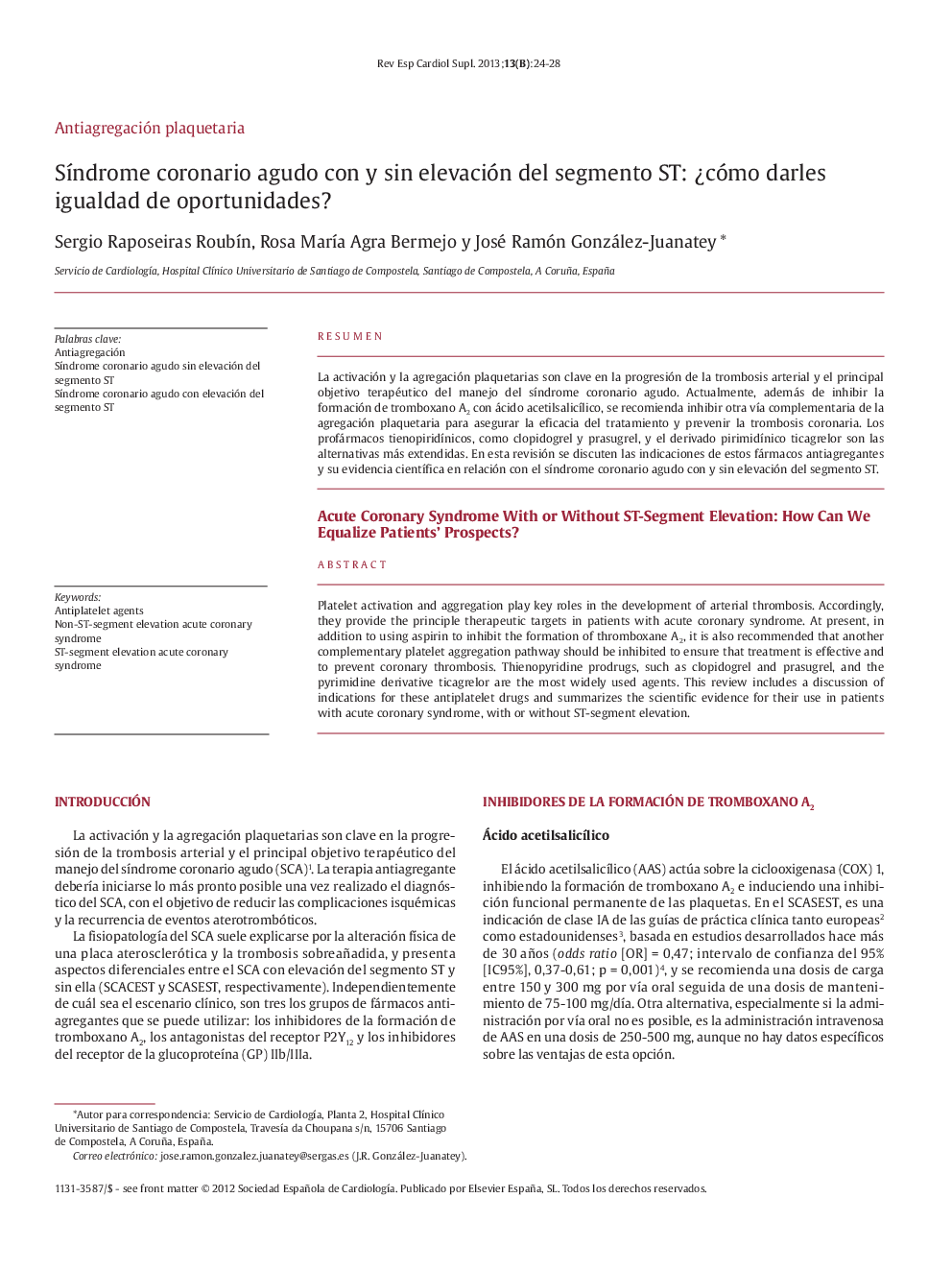| Article ID | Journal | Published Year | Pages | File Type |
|---|---|---|---|---|
| 3019391 | Revista Española de Cardiología Suplementos | 2013 | 5 Pages |
ResumenLa activación y la agregación plaquetarias son clave en la progresión de la trombosis rterial y el principal objetivo terapéutico del manejo del síndrome coronario agudo. Actualmente, además de inhibir la formación de tromboxano A2 con ácido acetilsalicílico, se recomienda inhibir otra vía complementaria de la agregación plaquetaria para asegurar la eficacia del tratamiento y prevenir la trombosis coronaria. Los profármacos tienopiridínicos, como clopidogrel y prasugrel, y el derivado pirimidínico ticagrelor son las alternativas más extendidas. En esta revisión se discuten las indicaciones de estos fármacos antiagregantes y su evidencia científica en relación con el síndrome coronario agudo con y sin elevación del segmento ST.
Platelet activation and aggregation play key roles in the development of arterial thrombosis. Accordingly, they provide the principle therapeutic targets in patients with acute coronary syndrome. At present, in addition to using aspirin to inhibit the formation of thromboxane A2, it is also recommended that another complementary platelet aggregation pathway should be inhibited to ensure that treatment is effective and to prevent coronary thrombosis. Thienopyridine prodrugs, such as clopidogrel and prasugrel, and the pyrimidine derivative ticagrelor are the most widely used agents. This review includes a discussion of indications for these antiplatelet drugs and summarizes the scientific evidence for their use in patients with acute coronary syndrome, with or without ST-segment elevation.
